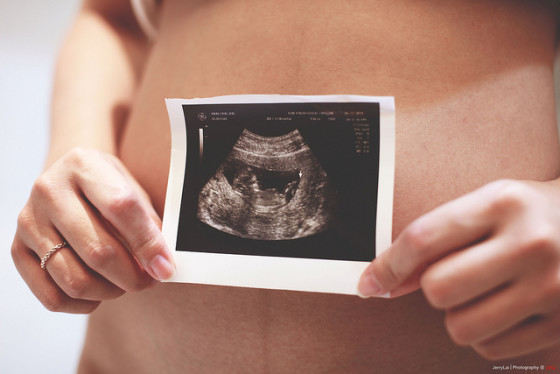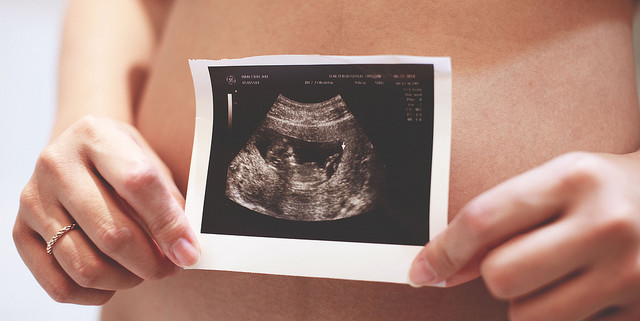Ectopic Pregnancy Basics

Contents
How Does Ectopic Pregnancy Happen?
The most common type of ectopic pregnancy is a “tubal pregnancy,” where the egg implants in one of the fallopian tubes. The egg may also implant in an ovary or even outside the uterus in the abdominal cavity.
There are a number of potential causes of ectopic pregnancy: malformed, inflamed, or damaged fallopian tubes, hormonal imbalances, abnormal development of the fertilized egg, and more. Risk factors include:
- having had abdominal surgery
- taking the mini-pill (progesterone-only birth control)
- using a copper contraceptive coil
- having had Pelvic Inflammatory disease
- undergoing fertility treatments such as IVF
- smoking
- endometriosis, a condition that causes cells like the ones that line your uterus to grow elsewhere in your abdomen
- having had a previous ectopic pregancy
Ectopic Pregnancy Symptoms
At the beginning, you may experience nausea, fatigue, and other common pregnancy symptoms. If you take a pregnancy test, it will show positive. The most common signs that the pregnancy may be ectopic are abdominal pain and vaginal bleeding. You may also feel unusual shoulder pain or a need to have a bowel movement, depending on where the ectopic pregnancy is located. If the fallopian tube ruptures, it may cause severe internal bleeding. That will cause you to feel lightheaded and dizzy and you may faint.
Your doctor will do a pelvic exam and may use blood tests or a laparoscope to make a diagnosis. Most cases are diagnosed about 6 weeks after conception.
Remember that if you’re pregnant and experiencing vaginal bleeding, you should always seek immediate medical attention. Not only is it a potential indication of an ectopic pregnancy, but it may also indicate placenta previa and other dangerous conditions.
Ectopic Pregnancy Treatment
An ectopic pregnancy cannot be carried to term – the necessary structures to support the development of a baby exist only in the uterus. However, the egg will start to grow once it implants. As it grows, it can burst the fallopian tube or ovary and cause severe and life-threatening internal bleeding. If the egg implants in the abdominal cavity, it can damage your other organs.
The only treatment for an ectopic pregnancy is removal. There are several different options. If the fallopian tube or ovary is not yet damaged, your doctor may give you methotrexate to encourage your body to reabsorb the egg. Your doctor will monitor the level of human chorionic gonadotropin (HCG), a pregnancy hormone, to determine whether the methotrexate is working. You may need more than one dose.
If the egg has grown enough to rupture the fallopian tupe or ovary, you’ll need to have surgery to stop the bleeding, remove the ectopic pregnancy, and remove or repair the damaged fallopian tube or ovary. This procedure may be done laparoscopically, where the doctor will make a small incision and use a camera to guide the procedure. In emergencies where the bleeding is severe, you may need a laparotomy, where the doctor will make a larger incision to open up your abdomen and treat the ectopic pregnancy. In some cases, your surgeon may be able to repair a damaged fallopian tube, but the damage is usually severe enough to require removal.
Avoiding Ectopic Pregnancy
Unfortunately, there is no surefire way to prevent this condition. However, you can decrease many of your risk factors. One of the most important things you can do to lower your risk is to protect yourself against Pelvic Inflammatory Disease (PID), a disease caused by sexually transmitted infections including chlamydia and gonorrhea. Make sure to have regular STD checks and insist that your partner(s) get them, too. Smoking is another controllable risk factor – it changes the chemistry of your fallopian tubes and makes it harder for the egg to pass through.
Future Pregnancies
If you’ve had an ectopic pregnancy, you may be wondering about its effects on future pregnancies. Once you’ve had one, your risk of having another increases. If you had to have a fallopian tube or an ovary removed, it may be more difficult for you to get pregnant. If both tubes were removed, you may not be able to get pregnant on your own. However, you may be able to use in vitro fertilization.
In other words, trying to have another baby after an ectopic pregnancy can be a difficult decision. The good news is that most women go on to have healthy pregnancies. You’ll need to talk to your partner and your doctor about your health, your risk factors, and what you can do to improve your chances of having a healthy pregnancy later on down the road.
The Bottom Line
An ectopic pregnancy can be painful, scary, and heartbreaking. It’s never easy to deal with and it’s important that you take the time that you need to heal and grieve afterward. Know that you’re not alone – about 1 in 50 pregnancies in the US are ectopic. Lean on your family, friends, and partner for support. You may want to speak to a grief counselor or a mental health professional to help you get through this difficult time.
Image Credit and License








My wife suffering to same problem, I don’t know what I do